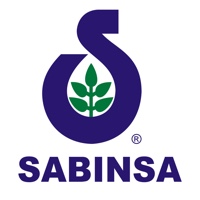Sabinsa, the multi-national health science company founded by Dr Muhammed Majeed, has celebrated its 35th anniversary as it gears up for its next phase of growth.
From a humble beginning in the US in 1988 as a company importing generic drugs, the company has long since emerged as an industry leader. In its remarkable journey, the Sami-Sabinsa Group has strengthened its place as a world-renowned player in the nutraceutical and cosmeceutical ingredients business.
Its product lines are well diversified into standardised herbal extracts, fine and specialty chemicals, probiotics, and enzymes. Grown on its strengths of innovation, scientific evidence, world-class quality, and exceptional service, the Sami-Sabinsa Group has evolved into a trusted global brand.
Dr Majeed, Founder & Group Chairman, Sami-Sabinsa Group, said: "As we celebrate this momentous occasion, we remain committed to delivering innovative and sustainable products and poised to continuously expand our market share. I would like to thank our customers, business supply-chain and other service partners, and the dedicated staff who have made this journey possible. While celebrating the past, we look forward to new accomplishments and milestones in the coming years."
The latest notable milestone of Sami-Sabinsa’s growth story is the recent unveiling of the new state-of-the-art unit -1 manufacturing facility at Hassan, India. This greenfield facility, Sami Nutraceuticals will serve the nutraceutical and pharmaceutical majors in various regulated markets globally.
Sami-Sabinsa has boosted its annual throughput to over 2000 tons and the combined plant area to 1.75 million sqft with the addition of Sami Nutraceuticals, which is the company's ninth manufacturing facility. In addition, the group is in the final phases of completion of its unit-2 manufacturing facility at Hassan, India which should be completed by December 2023.
With customer centricity as its brand's essence, the company has expanded its presence into several promising geographies globally, including the UK, France, Hungary, and Spain in Europe besides offices in Germany and Poland. Through global expansion, the company intends to stay close to its customers and understand their needs better. Sami-Sabinsa Group has a workforce of over 1,400 employees globally, across 17 countries, with multiple key associates having more than 25 years of in-house expertise.
In Intellectual Property (IP) to support its ingredients, Sami-Sabinsa has set the standard for decades. The IP infrastructure and team of Sami-Sabinsa Group spans over US, Europe, Canada, and India. The current suite of patents exceeds 440, including the US and other countries, which have enabled its novel ingredients to take the lead in international markets.
The company was the first to commit to research and publish studies in support of product safety and efficacy, long before this was considered an essential part of developing a branded ingredient. And the company has worked hard to set the standard for best practices throughout the global industry.
Sami-Sabinsa holds leadership positions in several product lines, many of which the company pioneered. Renowned brands in the Sami-Sabinsa portfolio include Curcumin C3 Complex, C3 Reduct, BioPerine, Boswellin, ForsLean, Shagandha, Saberry, LactoSpore, LactoSporin and Cosmoperine.
Sami-Sabinsa has consistently been recognised and awarded by international entities for its innovations, the most recent honor being the 2023 ABC Varro E. Tyler Commercial Investment in Phytomedicinal Research Award presented to the Sabinsa Corporation by the highly respected American Botanical Council (ABC). In addition, Sabinsa also received the Best Technology Innovation award for its LactoSpore product presented at the Food Formula Innovation Show in ChengDu, China.
Signaling its steady commitment to sustainable and environment-friendly practices, Sami-Sabinsa’s most recent initiative has been to invest in alternative energy to power its manufacturing facilities. Sami-Sabinsa’s long-standing sustainable raw material sourcing practices for the cultivation of numerous medicinal crops continues with the recently added Plectranthus hadiensis and Picrorhiza kurroa programs. This practice guarantees the supply of high-quality, fair-trade materials from farmers.





